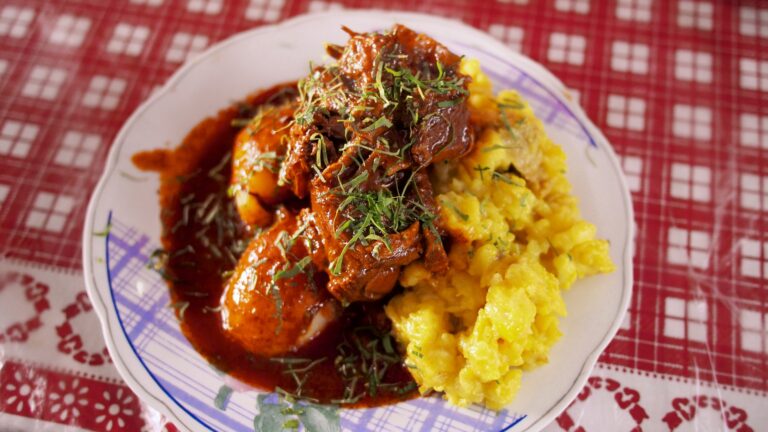Introduction: Vegetarianism in Bolivia
Vegetarianism is not a widely spread concept in Bolivia, as meat is an essential part of the traditional Bolivian diet. The country is known for its rich culinary heritage, which includes a variety of meat dishes, such as llama, alpaca, beef, pork, and chicken. However, in recent years, the number of vegetarians and vegans in Bolivia has been increasing, and more and more restaurants are accommodating their dietary needs.
Staple Foods of Bolivian Cuisine
Bolivian cuisine is characterized by its use of indigenous ingredients and cooking techniques that date back to pre-Columbian times. The staple foods of Bolivian cuisine are potatoes, corn, quinoa, rice, beans, and meat. These ingredients are used to create a variety of dishes that reflect the country’s diverse geography and cultural heritage.
Bolivian Dishes with Meat
Meat dishes are a fundamental part of Bolivian cuisine, and many of the country’s most popular dishes are meat-based. Some of these include “plato paceño,” a dish made with beef, potatoes, corn, and cheese, “silpancho,” a beef cutlet served with rice and potatoes, and “ají de fideo,” a spicy noodle soup made with beef.
Vegetarian Options in Bolivian Cuisine
While traditional Bolivian cuisine is heavily meat-based, there are still some vegetarian options available. Many Bolivian dishes incorporate vegetables, grains, and legumes, making them suitable for vegetarians. Some restaurants in Bolivia also offer vegetarian versions of traditional meat dishes.
Popular Vegetarian Dishes in Bolivia
Vegetarian dishes that are popular in Bolivia include “chupe,” a hearty soup made with potatoes, corn, and cheese, “sopa de maní,” a peanut soup, and “papas rellenas,” stuffed potatoes filled with vegetables or cheese. Another popular dish is “salteñas,” a type of empanada filled with vegetables.
Incorporating Local Ingredients into Vegetarian Cuisine
Bolivia has a wealth of local ingredients that are perfect for vegetarian cuisine. For example, quinoa can be used as a protein-rich substitute for meat, and the country’s many varieties of potatoes can be used in a variety of vegetarian dishes. Other local ingredients that can be incorporated into vegetarian cuisine include chuño (freeze-dried potatoes), oca (a root vegetable), and cactus fruit.
Challenges and Advantages of Eating Vegetarian in Bolivia
One of the challenges of being a vegetarian in Bolivia is that meat is so prevalent in the country’s cuisine that many restaurants may not have many vegetarian options. However, there are also advantages, such as the abundance of fresh produce and the opportunity to discover new and unique local ingredients.
Conclusion: Bolivian Cuisine for Vegetarians
While traditional Bolivian cuisine may not be the most vegetarian-friendly, there are still plenty of options for those who choose not to eat meat. Vegetarian versions of traditional dishes are becoming more prevalent, and many restaurants are now offering vegetarian options. With its wealth of local ingredients, Bolivian cuisine is ripe for exploration and experimentation in vegetarian cooking.

